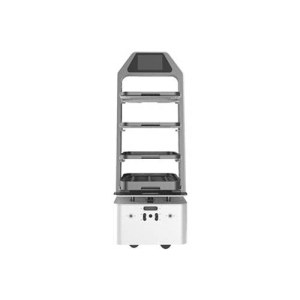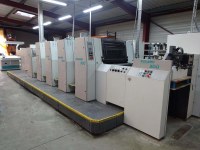Fdata's indoor delivery robot is based on ROS system, multi-sensor fusion SLAM algorithm, self-developed map building, adevice management platform, and multi-devices scheduling system. You can find the existence of our indoor delivery robot series widely used in different indoor workplaces, with its user-friendly interaction mode and human-machine collaboration capability. It can greatly improve work efficiency and reduce operational costs by reducing labor cost.
INDOOR DELIVERY ROBOT FEATURES
Self-charging
After use, the indoor delivery robot can return to the docking station and charge automatically.
Elevator Communication
The elevator can recognize our indoor delivery robot. The delivery robot can not only enter the elevator autonomously but also communicate outside of the elevator.
Obstacles Avoidance
With intelligent 3D sensors, the indoor delivery robot can avoid obstacles at various angles autonomously and maintain stable operation.
Antiskid
Using the antiskid design at the bottom, our indoor delivery robot can also move smoothly on the slippery road.
INDOOR DELIVERY ROBOT APPLICATIONS
The most concern is where delivery robots are used.
Fdata Indoor Delivery Robot can be used in hotels, campuses, hospitals, airports, office buildings, and stadiums. In these places, we can see delivery robots working hard, the indoor delivery automation saves labor and improves our living standards.
INDOOR DELIVERY ROBOT TECHNOLOGY
The core of indoor delivery robots to achieve automated delivery is to break the core technology of intelligent obstacle avoidance, autonomous navigation, elevator interaction, map building, and so on.
The Fdata team uses self-developed algorithms and a variety of sensors to apply to Indoor Delivery Robots, sensing dynamic or static obstacles in their path planning, and the robots will follow a certain algorithm to update their path in real time to avoid obstacles and finally reach their destination. The sensors used in obstacle avoidance include vision sensors, laser sensors, infrared sensors, ultrasonic sensors, etc. Multiple sensors are needed to use the robot for intelligent obstacle avoidance and to ensure the safety of pedestrians and the robot itself.
The SLAM technology was applied to the robot for instant positioning and map building, and the robot will interact with the environment in the actual task execution, which requires more technical support, and the application of path planning technology combined with the core algorithm to make the robot move freely in the complex environment.
Elevator control, as a delivery robot company, Fdata has developed an elevator control system to link the delivery robot with the elevator system for multi-floor positioning. The robot can walk through different floors, getting on/off the elevator independently and freely.
Localisation : Longhorn High-tech Park, Dalang, Longhua, Shenzhen, China, 518109 Shenzhen,
Personne à contacter : com Fdata, 0755 28140239








